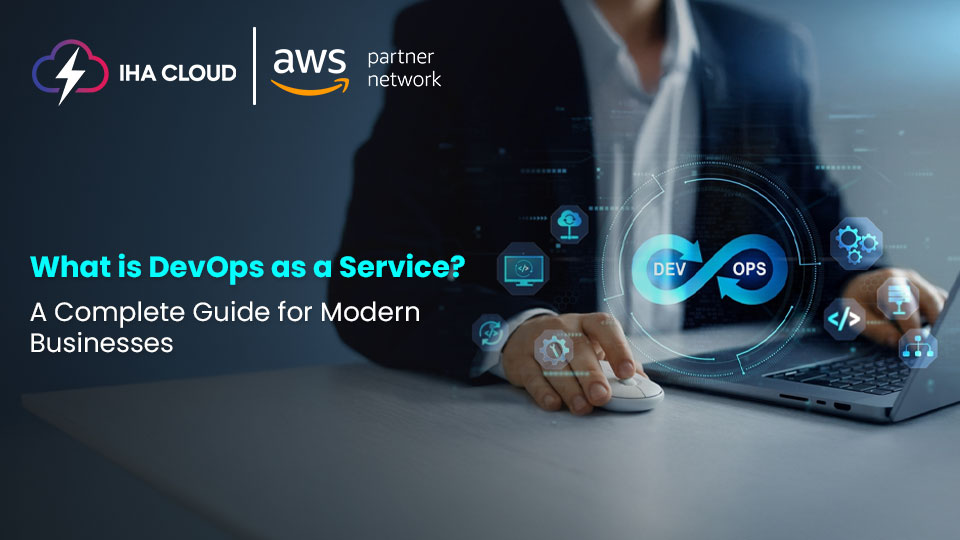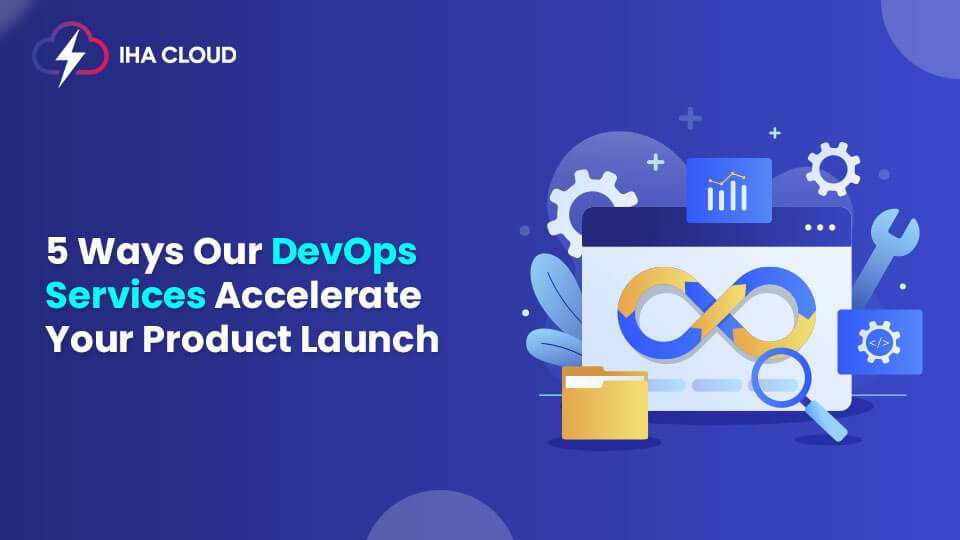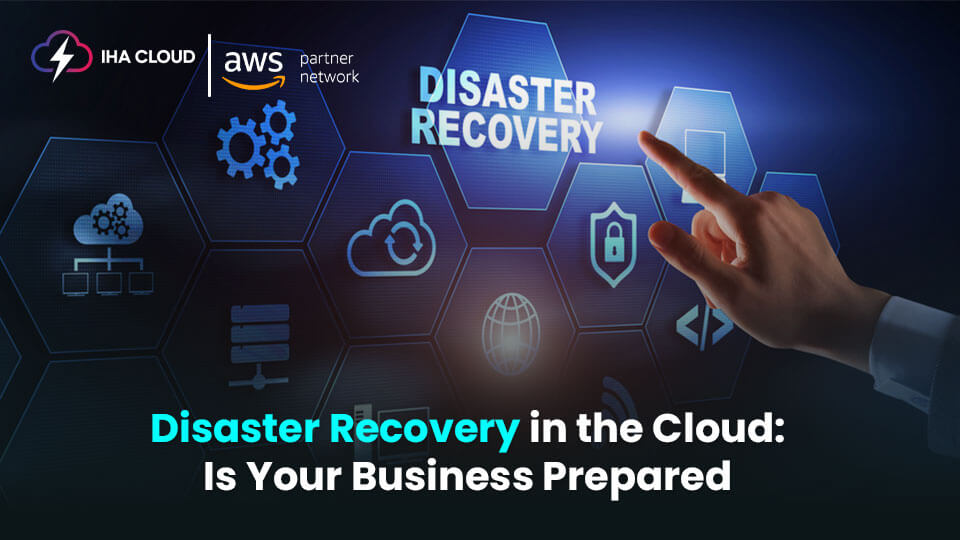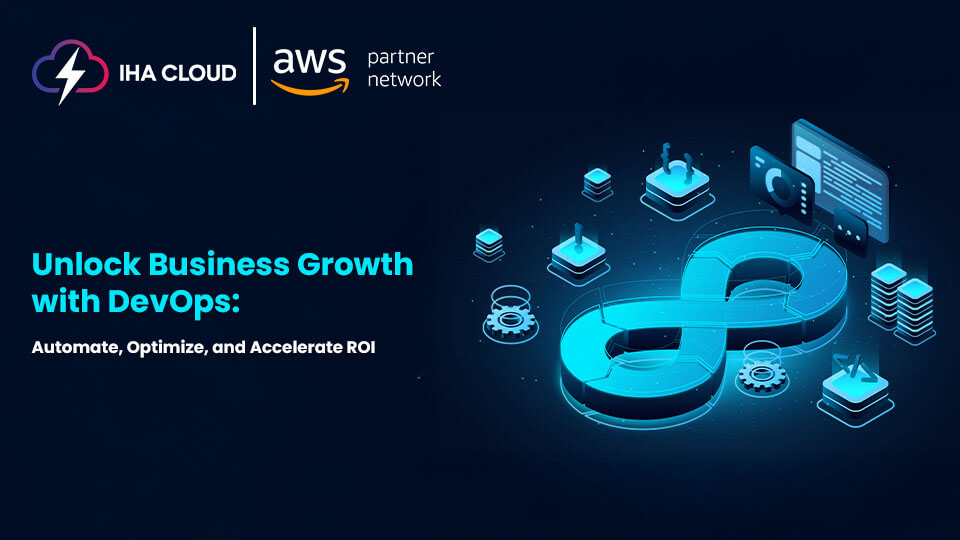Introduction
In today’s fast-paced digital world, businesses need to build and deliver software quickly and reliably. That’s where DevOps as a Service (DaaS) comes in.
Traditionally, DevOps is a culture and a set of practices that bring together development (Dev) and operations (Ops) teams to speed up software delivery and improve collaboration. However, setting up a full DevOps infrastructure in-house can be expensive, complex, and time-consuming.
DevOps as a Service solves this problem by offering DevOps capabilities through cloud-based platforms or managed services. Instead of building everything from scratch, companies can use pre-built tools, workflows, and expertise provided by a DaaS vendor.
In simple words, DaaS allows businesses to focus on building their applications while experts handle the automation, infrastructure, and delivery pipelines.
What Is DevOps as a Service?
DevOps as a Service (DaaS) is a model where a third-party provider sets up and manages your entire DevOps environment — including CI/CD pipelines, cloud infrastructure, testing, security, and monitoring.
Traditionally, companies had to:
- Build their own DevOps pipelines.
- Hire in-house DevOps engineers.
- Manage servers, tools, and integrations.
With DaaS, all of this is delivered on demand through the cloud.
You get a ready-to-use DevOps framework that can scale with your business — without needing to worry about the technical complexity.
In short:
DaaS = DevOps delivered as a managed service, allowing you to focus on innovation while experts handle the processes.
How DevOps as a Service Works
DaaS providers typically follow a streamlined approach:
- Assessment: They review your existing development and deployment processes.
- Planning & Design: A tailored DevOps pipeline is designed to fit your needs.
- Implementation: The provider sets up CI/CD pipelines, testing, security integrations, and monitoring.
- Ongoing Management: Continuous updates, optimization, and security patches are handled by the provider.
- Support & Scaling: As your business grows, the service scales to handle more workloads and larger teams.
This model eliminates the heavy lifting of setting up and maintaining DevOps in-house.
Why DevOps as a Service Matters
Adopting DevOps practices is no longer optional for businesses that want to stay competitive.
Here’s why the DaaS approach makes sense:
- Speed: Automated pipelines reduce manual steps, helping teams release updates and new features faster.
- Cost Efficiency: You don’t need to build or maintain your own DevOps infrastructure.
- Expertise: Providers offer skilled engineers who follow best practices and ensure robust delivery pipelines.
- Security: Managed services come with built-in compliance and security measures.
- Focus on Core Business: Teams can focus on developing features and improving customer experiences instead of managing DevOps workflows.
DevOps as a Managed Service
When you opt for DevOps as a Managed Service, you essentially hire a team of experts who take care of your entire DevOps environment.
Here’s what it means:
- The service provider sets up your CI/CD pipelines, cloud infrastructure, and monitoring tools.
- They ensure your software delivery process is automated, secure, and scalable.
- Your internal teams don’t have to worry about managing tools or troubleshooting issues — the provider handles it all.
This approach is ideal for businesses that:
- Don’t have a dedicated DevOps team.
- Want to save time and reduce the cost of hiring in-house DevOps engineers.
- Need reliable 24/7 support and proactive monitoring.
In short, DevOps as a Managed Service offers a hands-off experience. You get all the benefits of DevOps — like faster deployments, fewer errors, and better collaboration — without managing the technical complexity yourself.
DevOps Platform as a Service vs. DaaS
It’s common to confuse DevOps Platform as a Service (PaaS) with DevOps as a Service (DaaS), but they are not the same.
Here’s the difference:
1. DevOps Platform as a Service (PaaS)
- A DevOps PaaS is a cloud-based platform that provides the tools and infrastructure you need to implement DevOps.
- You still need your internal team to configure, run, and maintain the processes.
- It’s like renting a fully equipped kitchen — you get the appliances and tools, but you still need a chef to cook.
2. DevOps as a Service (DaaS)
- DaaS goes one step further. It combines the platform with expert services to manage everything for you.
- The provider sets up, monitors, optimizes, and maintains your entire DevOps ecosystem.
- Using the kitchen example, DaaS is like hiring a catering team — they bring the tools, prepare the meal, and even handle cleanup.
Choosing Between Them
- If you have a strong in-house DevOps team and just need tools, PaaS may be enough.
- If you want to offload the entire DevOps responsibility and focus on your core business, DaaS is the better choice.
In many cases, growing businesses and startups prefer DaaS because it’s faster to set up and requires fewer internal resources.
Key Benefits of DevOps as a Service
Businesses are shifting to DevOps as a Service because it brings speed, efficiency, and reliability to software delivery. Let’s look at the major benefits in simple terms:
1. Faster Time to Market
DaaS providers set up automated CI/CD pipelines that speed up coding, testing, and deployment.
This means new features, updates, and bug fixes reach customers faster — giving businesses a competitive edge.
2. Cost-Effective Approach
Building an in-house DevOps setup requires expensive tools, cloud infrastructure, and skilled engineers.
With DaaS, you pay only for the services you use. This reduces upfront investment and operational costs.
3. Expert Support and Maintenance
DaaS providers have experienced DevOps engineers who know best practices, tools, and security standards.
You get 24/7 support, continuous monitoring, and quick resolution of issues — without hiring a full in-house team.
4. Scalability and Flexibility
As your business grows, your DevOps needs also expand.
With DaaS, you can easily scale up or down your infrastructure and processes to match your project’s size and requirements.
5. Enhanced Security and Compliance
Leading DaaS providers ensure your workflows and infrastructure follow strict security protocols.
They also help businesses comply with industry regulations like GDPR, HIPAA, or ISO standards.
6. Improved Collaboration
By centralizing tools, processes, and workflows in the cloud, DaaS breaks down silos between developers, testers, and operations teams.
Everyone works in sync, which reduces delays and miscommunication.
In short, DaaS delivers all the DevOps benefits — speed, reliability, and cost savings — without the burden of managing everything internally.
Who Benefits Most from the DaaS Model?
Not every organization has the same needs.
Here’s who can gain the most from DevOps as a Service:
1. Startups and Small Businesses
Startups often have limited budgets and small teams.
DaaS lets them launch products quickly and affordably without the expense of hiring DevOps specialists or buying complex tools.
2. Growing Companies and Mid-Sized Enterprises
As businesses scale, they face challenges like handling more deployments, ensuring consistent quality, and managing complex infrastructures.
DaaS provides the flexibility to grow operations smoothly without slowing down innovation.
3. Enterprises with Legacy Systems
Large companies often deal with outdated infrastructure.
DaaS providers can modernize their delivery pipelines and migrate them to the cloud for better performance and efficiency.
4. Software Development Agencies
Agencies that manage multiple client projects can use DaaS to standardize workflows, automate testing, and deploy faster.
This improves client satisfaction and reduces project delivery times.
5. Organizations with Compliance Needs
Industries like healthcare, finance, and e-commerce face strict compliance requirements.
DaaS providers ensure these companies maintain secure and compliant DevOps processes.
Leading DevOps as a Service Providers and Platforms
The growing demand for DaaS has led to many reliable service providers and platforms offering specialized tools and expertise.
Here’s a look at some of the most popular and trusted DaaS solutions businesses rely on:
1. AWS DevOps Services
Amazon Web Services (AWS) is one of the biggest names in cloud computing and DevOps.
It offers tools like AWS CodePipeline, CodeBuild, and CodeDeploy that automate application delivery and infrastructure management.
AWS is a good choice for companies already using Amazon’s cloud ecosystem.
2. Microsoft Azure DevOps
Azure DevOps provides cloud-based CI/CD pipelines, repositories, project tracking, and testing tools.
It integrates easily with Microsoft products and is widely used by enterprises for large-scale DevOps workflows.
3. Google Cloud DevOps
Google’s DevOps services focus on reliability, security, and scalability.
Tools like Cloud Build, Artifact Registry, and Cloud Deploy simplify containerized application delivery and monitoring.
4. GitLab
GitLab is an all-in-one DevOps platform offering source code management, CI/CD, container registry, and monitoring in a single interface.
Its collaborative environment makes it popular among development teams.
5. GitHub Actions
For teams already using GitHub for source code hosting, GitHub Actions provides a seamless way to automate builds, tests, and deployments.
It’s especially favored by startups and smaller teams looking for simplicity.
6. Atlassian (Jira + Bitbucket + Bamboo)
Atlassian provides a robust ecosystem for project tracking (Jira), code management (Bitbucket), and CI/CD automation (Bamboo).
This makes it a great choice for teams seeking tight integration of project management and DevOps.
7. Harness
Harness is an AI-powered platform that automates software delivery with features like continuous deployment, cloud cost management, and security scanning.
It’s ideal for teams that want to reduce manual work and optimize resources.
8. CircleCI
CircleCI is a popular cloud-based CI/CD tool that integrates with GitHub and Bitbucket.
It is known for its speed and flexibility in building, testing, and deploying applications.
Each of these providers offers unique strengths.
Businesses can choose based on their size, budget, and technical needs — whether it’s cloud-native automation, enterprise-grade security, or simple workflows for startups.
Trends and Innovations in DevOps as a Service
The world of DevOps is evolving rapidly, and so is the DaaS model.
Here are some of the key trends shaping the future of DevOps as a Service:
1. AI and Machine Learning in DevOps
AI is helping teams predict failures, optimize resource usage, and speed up testing.
For example, intelligent monitoring tools can detect unusual patterns and alert teams before an issue causes downtime.
2. Serverless Computing
More companies are moving towards serverless architectures, where developers focus only on writing code while the provider handles servers and scaling.
DaaS platforms are adapting to support seamless serverless deployments.
3. GitOps Adoption
GitOps — managing infrastructure and deployments through Git repositories — is becoming a standard practice.
It ensures version control, transparency, and faster rollbacks during releases.
4. Shift-Left Security (DevSecOps)
Security is being integrated earlier in the development process.
DaaS providers now include automated security scanning, compliance checks, and threat detection as part of the CI/CD workflow.
5. Hybrid and Multi-Cloud Support
Organizations don’t want to be locked into one cloud provider.
Modern DaaS platforms allow teams to deploy and manage workloads across AWS, Azure, Google Cloud, and on-premises environments.
6. Enhanced Observability and Monitoring
Advanced analytics, real-time dashboards, and automated alerts help businesses gain better insights into application performance, costs, and user experience.
7. Low-Code and No-Code DevOps
Some DaaS platforms are now offering drag-and-drop interfaces for building pipelines and workflows, making DevOps more accessible to teams with limited coding skills.
These innovations make DaaS more flexible, cost-efficient, and user-friendly, enabling businesses of all sizes to accelerate their software delivery and stay competitive in the digital landscape.
Conclusion: The Future of DevOps as a Service
In today’s digital-first world, businesses need to deliver software faster, stay secure, and remain competitive. Traditional in-house DevOps models often struggle to keep up because they require significant investment in tools, talent, and infrastructure.
DevOps as a Service (DaaS) has emerged as a game-changer by offering a cloud-based, managed approach to DevOps. It combines modern automation tools with expert support, making advanced DevOps practices accessible to companies of all sizes.
Here’s why DaaS is shaping the future of software delivery:
- It removes barriers for startups by eliminating heavy upfront costs.
- It supports scalability and flexibility for growing businesses.
- It ensures compliance, security, and reliability for regulated industries.
- It allows enterprises with legacy systems to modernize without disruption.
By partnering with leading DaaS providers, businesses can focus on innovation, build better products, and bring them to market faster — without worrying about the complex details of DevOps infrastructure.
Frequently Asked Questions
DevOps as a Service (DaaS) is a cloud-based model where providers deliver and manage DevOps tools, automation, and workflows for businesses.
PaaS offers tools and infrastructure for DevOps, but you manage it yourself.
DaaS includes both the platform and expert services to handle everything for you.
Key benefits include faster software delivery, reduced costs, expert support, better security, scalability, and improved team collaboration.
Startups, growing enterprises, software agencies, and organizations with compliance needs or legacy systems can gain the most from DaaS.
AI-driven DevOps, GitOps, hybrid/multi-cloud support, shift-left security (DevSecOps), and low-code/no-code DevOps are leading future innovations.




